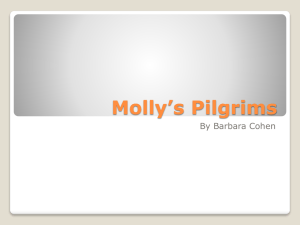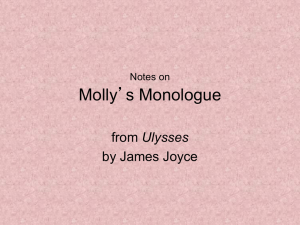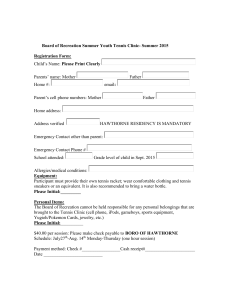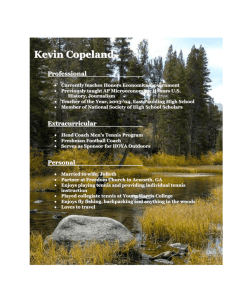File
advertisement
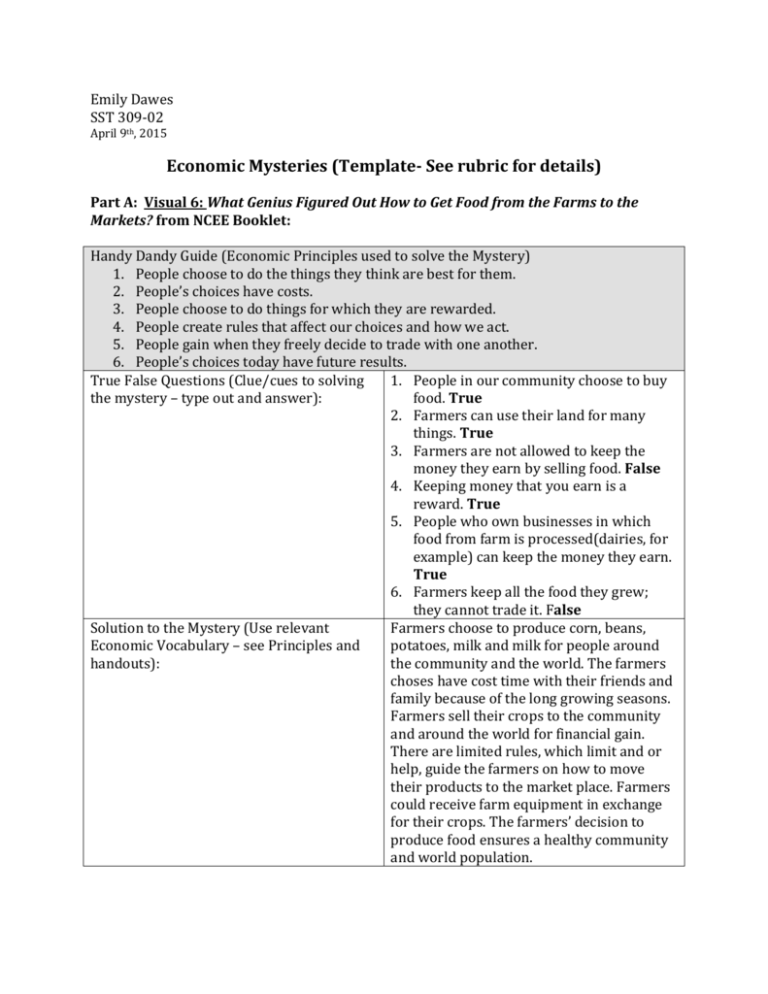
Emily Dawes SST 309-02 April 9th, 2015 Economic Mysteries (Template- See rubric for details) Part A: Visual 6: What Genius Figured Out How to Get Food from the Farms to the Markets? from NCEE Booklet: Handy Dandy Guide (Economic Principles used to solve the Mystery) 1. People choose to do the things they think are best for them. 2. People’s choices have costs. 3. People choose to do things for which they are rewarded. 4. People create rules that affect our choices and how we act. 5. People gain when they freely decide to trade with one another. 6. People’s choices today have future results. True False Questions (Clue/cues to solving 1. People in our community choose to buy the mystery – type out and answer): food. True 2. Farmers can use their land for many things. True 3. Farmers are not allowed to keep the money they earn by selling food. False 4. Keeping money that you earn is a reward. True 5. People who own businesses in which food from farm is processed(dairies, for example) can keep the money they earn. True 6. Farmers keep all the food they grew; they cannot trade it. False Solution to the Mystery (Use relevant Farmers choose to produce corn, beans, Economic Vocabulary – see Principles and potatoes, milk and milk for people around handouts): the community and the world. The farmers choses have cost time with their friends and family because of the long growing seasons. Farmers sell their crops to the community and around the world for financial gain. There are limited rules, which limit and or help, guide the farmers on how to move their products to the market place. Farmers could receive farm equipment in exchange for their crops. The farmers’ decision to produce food ensures a healthy community and world population. Part B: Write and Solve your own Economic Mystery Title of your own mystery: Why be late for a very important date? Handy Dandy Guide (Economic Principles used to solve the Mystery) 1. People choose to do the things they think are best for them. 2. People’s choices have costs. 3. People choose to do things for which they are rewarded. 4. People create rules that affect our choices and how we act. 5. People gain when they freely decide to trade with one another. 6. People’s choices today have future results. Your original economic mystery scenario: Molly is responsible for bringing a snack and her equipment to school so her babysitter can drop her off for tennis on Wednesdays. School releases at 3:45pm and tennis begins at 4:00pm. Tennis is 15 minutes from school. One Wednesday, Molly woke up late and forgot her tennis racquet. Molly’s house is 10 minutes away from school and 20 minutes away from tennis. Molly knows that she risks punishment for arriving late because she forgot her equipment last week; she decides to have her babysitter drive her home and to get her racquet anyway. Focus Question: Why would Molly go back home and get her tennis racquet if she is going to be late to tennis and risk punishment? True False Questions (Clue/cues to solving 1. Molly enjoys playing tennis. True the mystery – create your own and 2. Molly’s tennis instructor is happy when answer): Molly arrives late. False 3. Molly frequently forgets her equipment at home. True 4. Molly’s babysitter is happy when Molly forgets her equipment. False Solution to the Mystery (Use relevant Molly chooses to have her babysitter drive Economic Vocabulary – see Principles and her back home to pick up her racquet for handouts): tennis. Molly risks punishment at practice for arriving late because she went to pick up her racket. Although she risks getting punished, Molly will get to still play since she has her racquet at tennis. To help her remember to come prepared, her coach put the punishment in place. Her coach receives compensation for Molly arriving late. Due to Molly’s frequent tardiness, Molly’s tennis skills will suffer.
